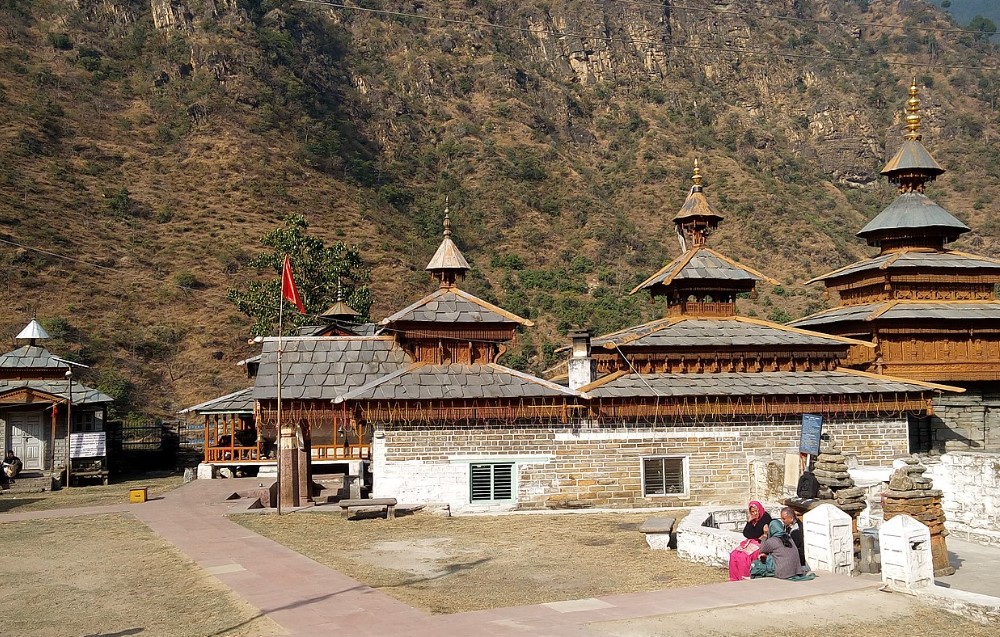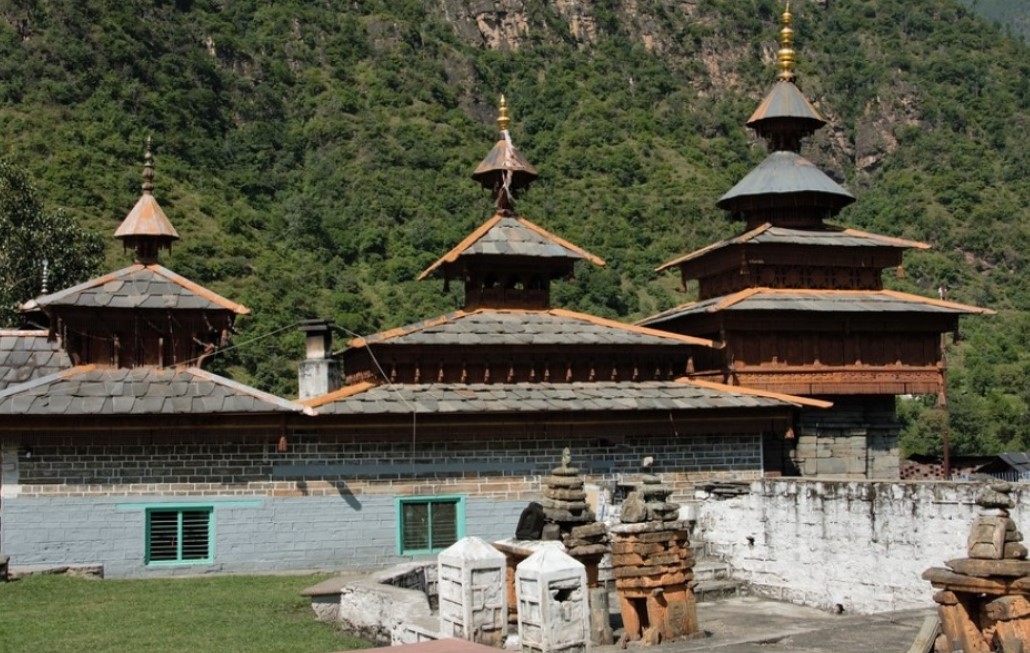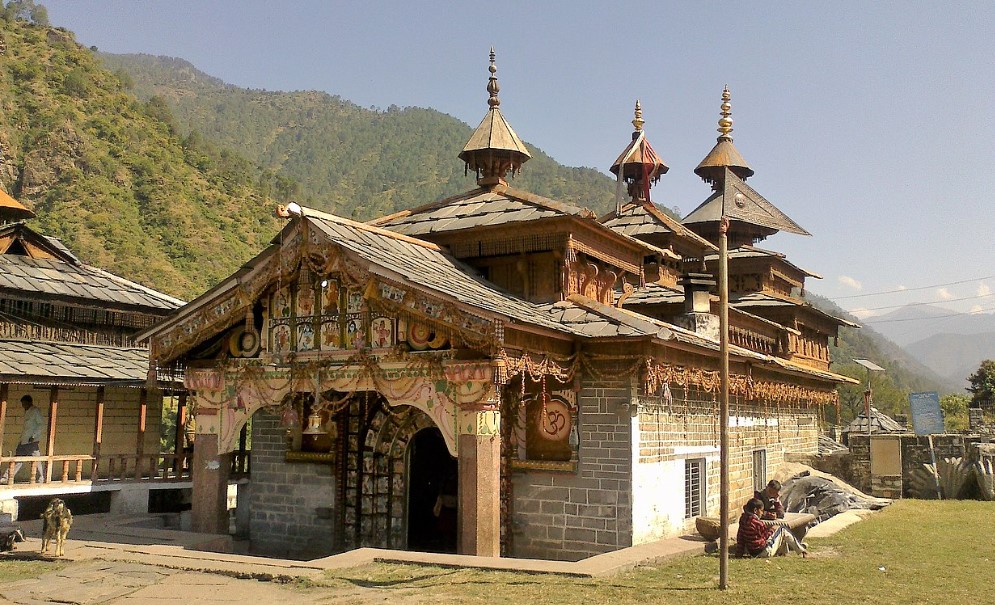In the state of Uttarakhand, the Mahasu Devta Temple is located in Hanol village.
This place is close to Chakrata, and is on the eastern bank of the Tonnes River (Tamas), 190 kilometres from Dehradun and 156 kilometres from Mussoorie.
It is said that in the deitydom, Mahasu Devta rules supreme over the countless native gods and goddesses in addition to serving as the solitary judge for mankind.
He wields his power on both secular issues and the religious dispensation of people.
People’s disagreements are resolved using the special LotaPani adjudication.

A party ritually fills a metallic goblet with water for this purpose in the name of Mahasu Devta, and the disputants are then instructed to sip the water in his or her honour.
The person who made the erroneous statement experiences consequences after drinking the water.
Legend of Mahasu Devta Temple
Mahasu Devta makes an appearance as the four brothers in a quadruple form. According to mythology, the pandavas followed Krishna when he vanished at the end of the DwaparYuga.
They cross the Tonnes River. Yudhishtra was fascinated by the grandeur of the location and urged Vishwakarma to construct a temple there and spend nine days with Draupadi.
Later, the area was given the name Hanol in honour of Huna Bhatt.
Demons roamed Uttrakhand at the beginning of the Kaliyuga, eating people and destroying communities.
The most powerful demon was Kirmir, who had swallowed all seven sons of Huna Bhatt, a Brahmin with a good heart.

Demon threw a bad omen and wished to make Kirtaka the Brahmin’s wife; she begged to Lord Shiva to preserve her virginity.
Kirmir was able to flee to her husband since Lord Shiva had rendered her blind.
They then prayed to Ashtbhuji Durga, also known as Hatkeshwari Devi of Hatkoti, who urged the pair to travel to the Kashmir mountains and ask Lord Shiva for assistance there.
When they did, Lord Shiva granted their prayer for the swift annihilation of all evil.
Huna Bhatt was instructed to return to his house, carry out specific rituals, and worship Devi.
Upon doing so, the shakti rose from the earth with flames surrounding her and instructed Huna Bhatt to yoke a pair of bullocks who had never been yoked before and plough a portion of his field every Sunday with a solid silver plough and a shoe made of pure gold.
The Mahasu brothers, their ministers, and the army will arrive on the seventh Sunday to free the populace from the grip of the demon.
Huna Bhatt followed through on this, but on the sixth Sunday after turning on five furrows, a deity appeared out of each one: from the first, Botha; from the second, Pavasi; from the third, Vasik; and from the fourth, Chalda. All of the brothers shared the prefix Mahasu (Char Mahasu) in their names.
Their heavenly mother Devladli Devi and their ministers emerged from the fifth furrow. From the field, countless armies appeared like mushrooms.
When Huna Bhatt followed instructions, the Mahasu brothers slaughtered the entire demon army. In a Mount Khanda ravine, Chalda Devta captured Kirmir.
Today, one can still see the sword traces on the granite.
The demon Keshi took over Hanol while the Mahasu brothers were not present.
Along with the army, Chalda Devta travelled to the Masmor Mountains, where Keshi had left, along with his troops Shitkulia, Kaolu, and others.
After the demon was vanquished, Chalda Devta triumphantly made his way back to the locations he had designated with his heroes.
In order for the brothers to administer their different territories and protect against the misfortunes of everyone who would worship them as gods and practise jagara, he split the nation among them.
But the Mahasu brothers’ business effort ended in failure. Mahasu Devta initially gave Huna Bhatt their word that they would show up on the sixth Sunday.
The Mahasu brothers were harmed by Huna Bhatt’s plough since they arrived a week early; he was in the field and was not aware of their premature arrival.
Botha suffered a knee injury as a result, rendering him unable to walk. The blade of grass hurt Vasik’s eye, impairing his eyesight.
Pavasi had a small portion of his ear removed. Only Devladli Mata and Chalda were unharmed.
After that, Botha preferred to reside in his temple at Hanol, which is located on the right bank of the Tonnes River.
Pavasi continually moves across his dominion, spending years at Hanol, Lakhmandal, Authana, and Uttarkashi.
Being in good health, Chalda was able to exercise throughout the entire dominion in the name of Botha Mahasu for a continuous twelve years.
The four deities each have an attendant, or bir. They are Shitkulia, Kailath, Kapala, and Kaolu. Each and every bir has a female helper, or balyayini.
You may also like: Garjiya Devi Temple – Ramnagar – Nanital – Shakti peeth

